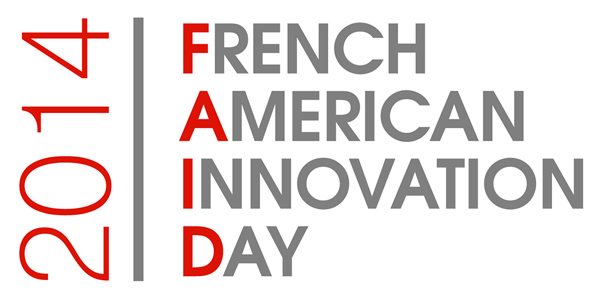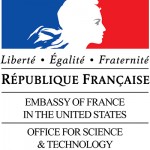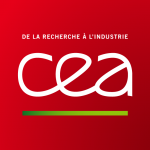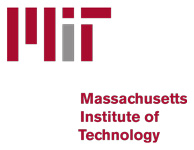
Organizers
-
Embassy of France in the United States - Office for Science & Technology
The Office for Science and Technology (OST), a team of 24 staff members including professors, senior researchers and engineers located in the Embassy (Washington, DC) and 6 consular offices (Atlanta - Boston - Chicago - Houston - Los Angeles - San Francisco) is dedicated to bilateral FR-US collaborations in Science and Technology.
The OST’s main priorities are to Monitor and report advances in Science and Technology in the US through newsletters and diplomatic channels, Promote bilateral partnerships in science, technology and innovation, Foster exchanges and increase mobility of researchers, doctoral students and entrepreneurs, Serve as a liaison between French and American academic and scientific organizations as well as between the two countries’ central governments and the European Delegation, Increase the visibility of France’s foremost laboratories, universities and start-ups, Support young innovative companies and the internationalization of competitiveness clusters.
Close collaboration between the OST and other diplomatic divisions, such as the Economic Department, the Cultural Services of the Embassy of France as well as French Research Organizations (CNRS, Inserm, CNES, CEA), allows the OST to efficiently handle the many economic and social implications of current science and technology issues.
-
CEA - French Alternative Energies and Atomic Energy Commission
The CEA is the French Alternative Energies and Atomic Energy Commission (Commissariat à l'énergie atomique et aux énergies alternatives). It is a public body established in October 1945 by General de Gaulle. A leader in research, development and innovation, the CEA mission statement has two main objectives: To become the leading technological research organization in Europe and to ensure that the nuclear deterrent remains effective in the future.
The CEA is active in four main areas: low-carbon energies,defense and security, information technologies and health technologies. In each of these fields, the CEA maintains a cross-disciplinary culture of engineers and researchers, building on the synergies between fundamental and technological research.
-
Massachusetts Clean Energy Center (MassCEC)
The Massachusetts Clean Energy Center (MassCEC) is dedicated to accelerating the success of clean energy technologies, companies and projects in Massachusetts—while creating high-quality jobs and long-term economic growth for the people of Massachusetts.
MassCEC provides early-stage investments to startup companies, funds renewable energy rebates for residents and businesses and supports the development of a local clean energy workforce. Since its inception in 2009, MassCEC has helped clean energy companies grow, supported municipal clean energy projects and invested in residential and commercial renewable energy installations creating a robust marketplace for innovative clean technology companies and service providers.
-
Massachussets Institute of Technology
The mission of MIT is to advance knowledge and educate students in science, technology and other areas of scholarship that will best serve the nation and the world in the 21st century — whether the focus is cancer, energy, economics or literature.
Institute research focuses on many topics — from biology and chemistry to political science, economics and linguistics — but when an issue is of global, immediate importance, MIT puts its effort where it is needed most. TheMIT Energy Initiative is a way that MIT is channeling its collective energies into solving large-scale problems.
The MIT Energy Initiative (MITEI), established in September 2006, is an Institute-wide initiative designed to help transform the global energy system to meet the needs of the future and to help build a bridge to that future by improving today's energy systems.
-
MIT France Program – Massachusetts Institute of Technology
Since 2001, the MIT-France Program has facilitated connections between MIT and leaders in research, industry, and innovation in France. MIT-France is housed under the umbrella of MIT’s flagship international education program, the MIT International Science and Technology Initiatives (MISTI). Rooted in the Mens et Manus tradition, MISTI matches MIT students with fully-funded internship, research and teaching opportunities abroad, and facilitates international faculty collaborations and develop partnerships with leading companies, research institutes and universities around the world. Our partners—companies, organizations, governments and MIT alumni around the world—benefit from purposeful interaction with MIT’s research community and the opportunity to develop collaborative ventures with MIT faculty and students.
Every year, the MIT-France Program matches MIT students with research and internship opportunities in France. The program pre-selects from the top tier of MIT students. Candidates are from all levels and majors at the Institute and must complete two years of French courses and cultural preparation prior to their three to six month internships. The MIT-France network of host organizations includes leading companies, start-ups, research institutes, universities and NGOs.
The MIT-France Seed Fund helps MIT faculty jump-start research collaboration with colleagues in France. Since 2001, the fund has supported 94 projects, resulting in long-lasting collaborations with frequent faculty and student exchanges, article publications and subsequent grants received.




